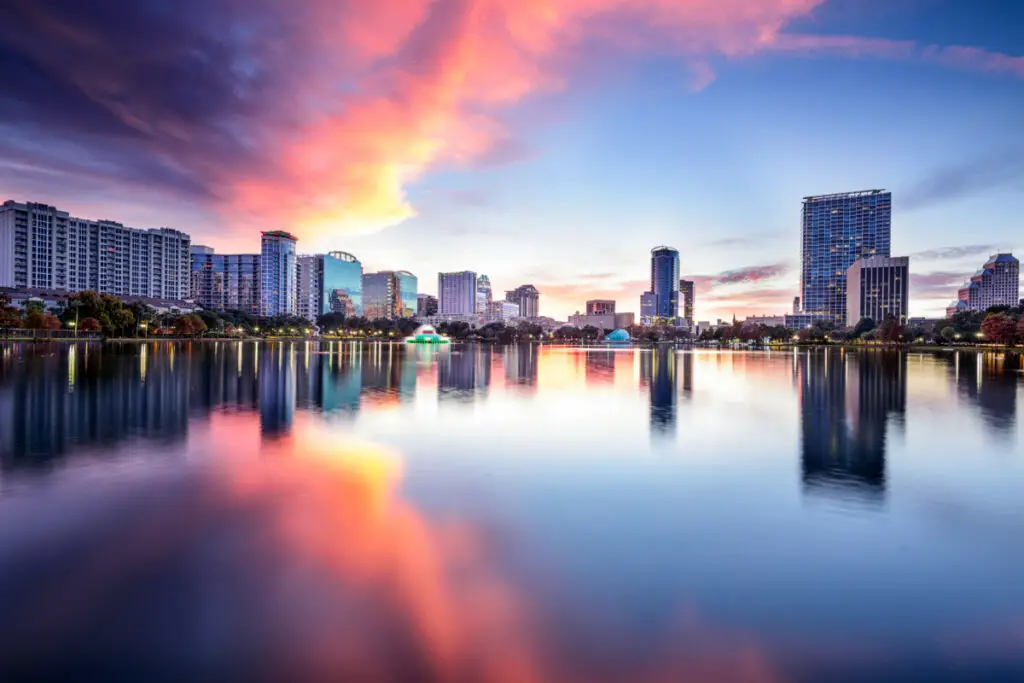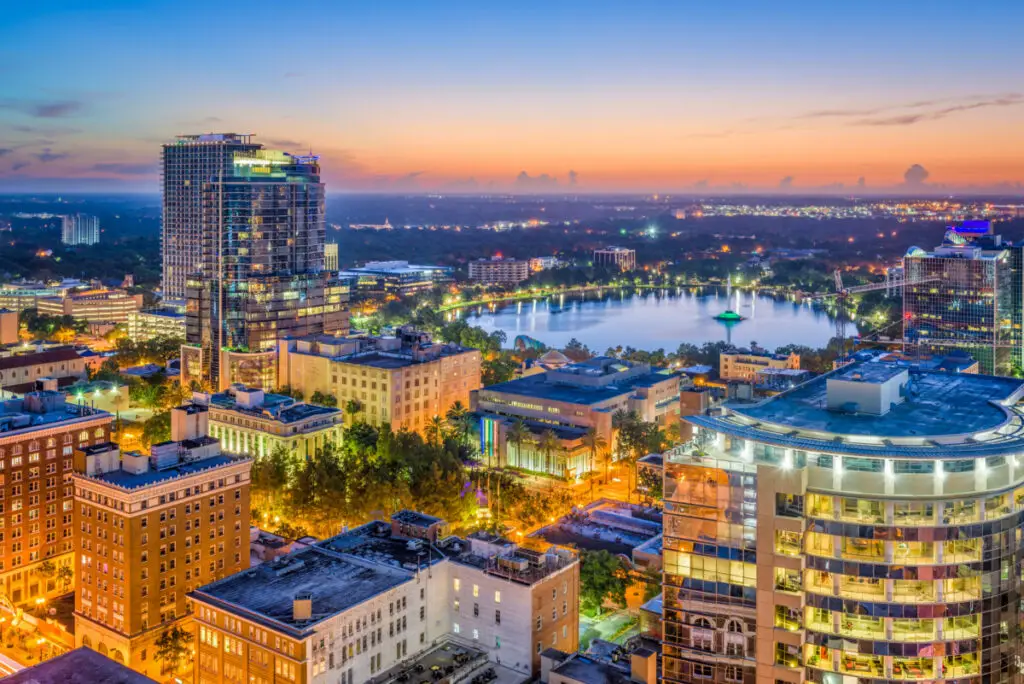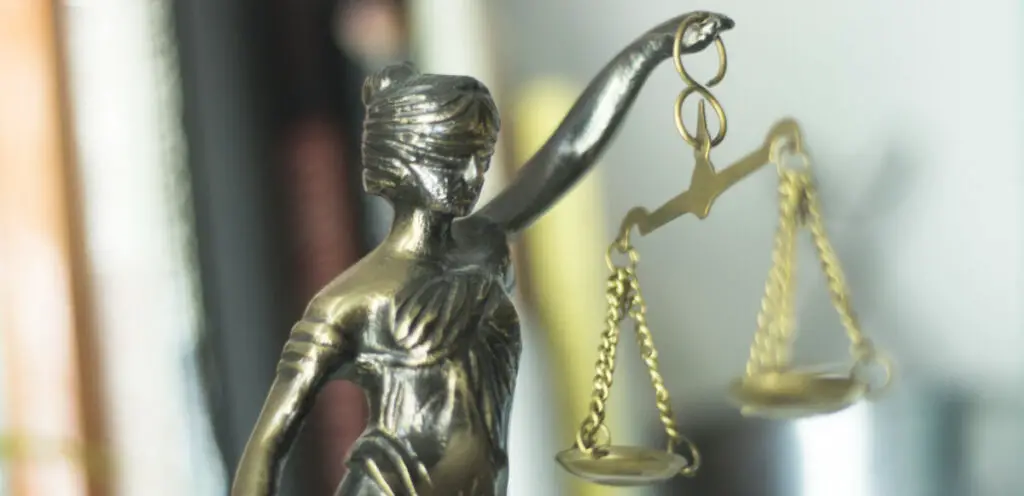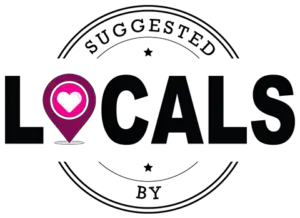
Politics have become an important part of our society; our media in particular is wrought with political opinions. Many people want to know if their neighbors have the same political beliefs that they have. Is Orlando, Florida predominantly a liberal or conservative city?
Orlando, FL is a moderately liberal city. The majority of residents have voted for the Democratic candidate in every election since 2000. Orange County, Orlando’s county, is also moderately liberal, but Florida is a swing state that has tended toward conservative in the past few elections.
There are many factors that influence and/or represent the political climate of a city. To figure out the political climate of a city, it is important to consider the results of presidential elections, the local leaders, the policies that are in place, and the demographics.
Presidential Elections
The results of the presidential election in a city are a major indicator of whether that city is liberal or conservative. The two major political parties in the United States, the Democratic party and the Republican party, and their candidates are representative of the liberal and conservative points of view. The Democratic party has mostly liberal members and supports liberal policies. The Republican party has mostly conservative members and supports conservative policies. If the majority of residents in a city vote for the Democratic candidate, then the city probably has a liberal majority. If most of the people in a city vote for the Republican candidate, the city is mostly conservative.
Florida is a swing state . Most states can be consistently counted on to vote for the Democratic or Republican candidate. However, swing states can potentially go one way or the other. The results of an election tend to come down to the voters in the swing states.
. Most states can be consistently counted on to vote for the Democratic or Republican candidate. However, swing states can potentially go one way or the other. The results of an election tend to come down to the voters in the swing states.
Florida residents have voted for the Republican candidate in four of the six elections between 2000 and 2020. The differences between the percentages of Republican votes and Democratic votes were between 0.1% (lowest difference in 2000) and 5% (highest difference in 2004) in every election. The Republican candidate may have won more, but the margins were very close, which is part of what makes it a swing state. Florida tends toward the conservative perspective but isn’t consistently conservative.
In the 2020 election, 51.2% of residents voted for the Republican candidate and 47.9% voted for the Democratic candidate. The difference between the percentages was 3.3%.
Orange County, which is the county in which Orlando is, is moderately liberal . The county has voted for the Democratic candidate in all of the elections from 2000 to 2020. The difference in the percentages was 2.04% in 2000 and 0.21% in 2004, but in every other year, the percentage differences were between 15% and 25%.
. The county has voted for the Democratic candidate in all of the elections from 2000 to 2020. The difference in the percentages was 2.04% in 2000 and 0.21% in 2004, but in every other year, the percentage differences were between 15% and 25%.
In the 2020 election, 60.85% of Orange County residents voted for the Democratic candidate and 37.8% voted for the Republican candidate. The difference between the percentages was 23.05%, which was the second highest after the difference in 2016. The percentage of Democratic votes was higher than in any of the other elections, and the percentage of Republican votes was lower than in any of the elections other than 2016.
Like Orange County, Orlando is a moderately liberal city . Unlike its state, the city is consistently Democratic. In the past six elections, the city voted for the Democratic candidate every time. In 2000 and 2004, the difference between the percentages was less than 10%, but every other year it was more than 10%. Orlando has similar voting statistics to Orange County.
. Unlike its state, the city is consistently Democratic. In the past six elections, the city voted for the Democratic candidate every time. In 2000 and 2004, the difference between the percentages was less than 10%, but every other year it was more than 10%. Orlando has similar voting statistics to Orange County.
From 2018 to 2021, there were 29,515 contributions to the Democratic party in Orlando. These donations totaled $6,426,794. In contrast, the Republican party only had 8,576 contributions during that same time frame, which added up to $5,334,552. The donations to the Republican party were, on average, 3 times higher than the donations to the Democratic party, which is why the total money amounts are so close when the Democratic party had a significantly higher number of contributions.
Local Leaders

The local leaders of a city are another important factor in a city’s political climate. These are leaders that the people decided to elect because they supported their ideas. The political parties of local leaders, the campaign platforms they used to run, and the policies they have enacted are all important to consider when deciding whether a city is liberal or conservative.
Mayor
The mayor is responsible for proposing a budget, signing laws, appointing certain city employees, and overseeing operations of the city.
The mayor of Orlando is Buddy Dyer . He was first elected in 2003; since then he has been reelected four times. His current term will end in 2023, but he may end up coming back for more.
. He was first elected in 2003; since then he has been reelected four times. His current term will end in 2023, but he may end up coming back for more.
Before he was mayor, Dyer was in the Florida state senate. He has a bachelor’s in civil engineering and a law degree.
During his time as mayor, Dyer has supported many initiatives. He has focused on community trust, caring for the homeless, diversity, public safety, sustainability, quality housing access, and opportunities for youth.
The elections for mayor are nonpartisan, but Mayor Dyer has been affiliated with the Democratic party. The policies he has enacted and supported are further evidence that he has a primarily liberal mindset.
City Council
The Orlando City Council is in charge of adopting or changing the budget that the mayor proposes, approving mayoral appointees, imposing taxes, and creating or changing laws.
is in charge of adopting or changing the budget that the mayor proposes, approving mayoral appointees, imposing taxes, and creating or changing laws.
There are seven city council members, including the mayor. The mayor is elected by the entire city, but the other six members are each elected by one of Orlando’s six districts. Every current city council member has served for at least one term. The city council elections are nonpartisan, so the city councilors are all considered nonpartisan, but most are affiliated with the Democratic party.
Policies

The policies that are in place in an area are very indicative of the political parties in that area. Certain policies are more or less likely to be supported by liberals or conservatives. Legal abortion, more gun control laws, and legal same-sex marriage are all laws that tend to be supported by liberals and opposed by conservatives.
Abortion
In Florida, abortions must be performed 24 weeks after the last menstrual period unless the life or health of the patient is in danger. Before receiving an abortion, the patient must go through a session of state-directed counseling and ultrasound. Abortions are not covered by health plans or public funding. The parents of minors must consent before the minor can receive an abortion.
must be performed 24 weeks after the last menstrual period unless the life or health of the patient is in danger. Before receiving an abortion, the patient must go through a session of state-directed counseling and ultrasound. Abortions are not covered by health plans or public funding. The parents of minors must consent before the minor can receive an abortion.
In 2017, there were 85 facilities that provide abortions, 65 of which were clinics. This is an 8% decrease from 2014. 73% of Florida counties did not have an abortion clinic, leaving 24% of Florida women without access to an abortion clinic.
Orlando residents tend to support a decrease in abortion laws in Florida to allow women easier access to them.
Gun Control Laws
In 2020, Florida had the 29th highest gun death rate in the country and the 17th lowest crime gun export rate. Florida gun laws include minimum age laws, waiting periods, open carry regulations, child access prevention laws, a background check period, and a state database background check. Florida gun laws do not include universal background checks, gun owner licensing, domestic violence gun laws, an assault weapons and large capacity magazine restrictions, concealed carry laws, or reporting for lost/stolen guns.
include minimum age laws, waiting periods, open carry regulations, child access prevention laws, a background check period, and a state database background check. Florida gun laws do not include universal background checks, gun owner licensing, domestic violence gun laws, an assault weapons and large capacity magazine restrictions, concealed carry laws, or reporting for lost/stolen guns.
Orlando residents tend to support an increase in gun control laws in Florida to make it harder to get ahold of firearms.
Same-Sex Marriage
Florida legalized same-sex marriage on January 6, 2015 . This was six months before the Supreme Court mandate requiring all states to legalize gay marriage. Florida was the 36th state to legalize gay marriage. Orlando residents supported the legalization of same-sex marriage.
. This was six months before the Supreme Court mandate requiring all states to legalize gay marriage. Florida was the 36th state to legalize gay marriage. Orlando residents supported the legalization of same-sex marriage.
Demographics
The population of Orlando is 289,457 people. The population density is 2,628 people per square mile. 51.6% of the population is female and 48.4% is male. the median age is 33, and the average number of people per household is 2.4.
of Orlando is 289,457 people. The population density is 2,628 people per square mile. 51.6% of the population is female and 48.4% is male. the median age is 33, and the average number of people per household is 2.4.
The racial makeup of Orlando is as follows:
of Orlando is as follows:
- White: 38.1%
- Black: 25.1%
- Hispanic/Latino: 29.7%
- Asian: 4.2%
- Native American: 0.1%
- Hawaiian/Pacific Islander: 0.0%
- Two or More Races: 2.0%
- Other: 0.8%
38.7% of the population in Orlando is married and 13.6% is divorced. 24.5% of residents are married with children and 27.0% are single with children.
of the population in Orlando is married and 13.6% is divorced. 24.5% of residents are married with children and 27.0% are single with children.
The average income of Orlando residents is $25,664 per year, and the median household income is $41,901 per year. The unemployment rate is 5.8%. The sales tax rate is 6.5%, and there is no income tax.
of Orlando residents is $25,664 per year, and the median household income is $41,901 per year. The unemployment rate is 5.8%. The sales tax rate is 6.5%, and there is no income tax.
90.1% of Orlando residents are high school graduates, and 19.3% are only high school graduates. 23.7% of residents have two-year degrees, 35.8% have four-year degrees, 2.6% have master’s degrees, and 1.1% have professional degrees.
of Orlando residents are high school graduates, and 19.3% are only high school graduates. 23.7% of residents have two-year degrees, 35.8% have four-year degrees, 2.6% have master’s degrees, and 1.1% have professional degrees.
43.2% of Orlando residents are religious. 40.5% are Christian, 0.4% are Jewish, 1.1% are of eastern faith, and 1.1% are affiliated with Islam.
of Orlando residents are religious. 40.5% are Christian, 0.4% are Jewish, 1.1% are of eastern faith, and 1.1% are affiliated with Islam.
The rate of violent crime in Orlando on a scale of 1 to 100 is 44.1. The rate of property crime in Orlando is 81.0.
in Orlando on a scale of 1 to 100 is 44.1. The rate of property crime in Orlando is 81.0.
Related Topics:
If you like the article above, here are some other similar articles you should check out!
Is There Public Transportation in Orlando, Florida?
